The New Right
v.
The Constitution
The New Right
v.
The Constitution
Stephen Macedo
INSTITUTE
Copyright 1987 by the Cato Institute
All rights reserved
Revised and expanded
Second printing: September 1988
Library of Congress Cataloging-in-Publication Data
Macedo, Stephen, 1957-
The New Right v. the Constitution.
Includes bibliographical references.
1. United StatesConstitutional lawInterpretation and construction. 2. ConservatismUnited States.
I. Title.
| KF4550.M22 | 1986 | 342.73'029 | 87-21852 |
| ISBN 0-932790 66-6 (pbk.) | 347.30229 |
Printed in the United States of America
C ATO I NSTITUTE
224 Second Street SE
Washington, D.C. 20003
For my sister
Carolyn Ann Macedo (1961-1987)
The strength of the Courts of law has always been the greatest security that can be offered to personal independence; but this is more especially the case in democratic ages. Private rights and interests are in constant danger if the judicial power does not grow more extensive and stronger to keep pace with equality of conditions.
Alexis de Tocqueville
Democracy in America
Foreword
Stephen Macedo's monograph The New Right v. the Constitution contains a number of constitutional ironies. For decades, liberals and conservatives have been divided over the proper approach to constitutional interpretation. The standard liberal view has emphasized the openness of the constitutional text and the need to take changed circumstances into account in construing constitutional provisions. Liberated from the confining notion of Original Intent, judicial activism in support of fundamental values became the centerpiece of the liberal agenda. It culminated in the Supreme Court's most important decision, Brown v. Board of Education, which ordered the end of de jure segregation in public schools, and, far more controversially, in Roe v. Wade, which constitutionalized women's right to abortion.
The conservatives have observed a different set of principles. In their view, the Constitution primarily established the rules for the operation of democratic institutions. The structural provisions of the Constitution thus dominate provisions intended to secure individual rights against the government. A presumption of judicial restraint was the result ot'this fundamental position.
Macedo's essay is yet further evidence that the straightforward dichotomy between left and right, liberal and conservative, is now breaking down. Macedo is to be commended for bringing the libertarian, natural-rights tradition back to constitutional interpretation. He launches a sustained attack on three basic conservative tenets: the doctrine of Original Intent, which holds that the Constitution should be interpreted in accordance with the intentions of the Framers who drafted and ratified it; the assumption that the Constitution organized a system of popular democracy; and the view of judicial restraint that is said to follow from these two positions. For Macedo, the limitations upon popular democracy are as much a part of the Constitution as the institutions of democracy itself. Accordingly, judges cannot indulge the easy presumption that legislation is constitutional unless the contrary is clearly shown. Instead, in each case there has to be a neutral inquiry into how the provisions of a statute square with the language and structure of the Constitution. The invalidation of legislation is not some extraordinary event in the life of a constitutional democracy; it is part of the original design.
The target of Macedo's attack is noted conservative Robert Bork, now on the circuit court for the District of Columbia and frequently mentioned as a possible Reagan candidate for a future vacancy on the Supreme Court. Macedo also criticizes Attorney General Edwin Meese and Assistant Attorney General for Civil Rights Bradford Reynolds.
Macedo is clearly correct in rejecting the idea that the Constitution envisions an unfettered system of popular democracy: the provisions protecting individual rights are entitled to a dignity equal to that of other parts of the Constitution. Although Macedo does not emphasize the point, I am persuaded that the dangers of faction demonstrate the wisdom of entrenching individual rights against the state. The common perception that "special interests" are able to take over the legislature is all too true. The fear of faction in turn raises concerns as to both substance and process. Special-interest legislation, for example, can direct government expenditures to a single group out of general revenues, and it can exempt certain groups from taxation. In each case, the unequal distribution of benefits and burdens is rightly perceived as fundamentally unfair. An elaborate effort to take from A and give to B, such legislation is an appropriate subject for judicial review.
I would also argue, with Macedo, that one has to be very cautious in dealing with the question of "specific intent." Both he and Justice Brennan are correct in insisting that it is fruitless to interpret the general provisions of the Constitution solely with reference to the particular legislative abuses that prompted their passage. Macedo demonstrates anew how circumstances can undermine a theory of specific intent, understood as an effort to seek out the motivations of the Framers. He shows with great vigor the difficulties of ascertaining "the" constitutional intent when all that is available in the record is the inconsistent, ambiguous, and unreflective intentions of the large group of independent persons who participated in drafting or ratifying the Constitution. In this respect, the search for constitutional intent is no simpler than the more routine search for contractual intent in complex multiparty-contract cases.
The jurisprudential concern with intention has another, more useful side, one that should not be discarded along with the vain quest for Original Intent. The invocation of intent can stand for the position that the text of the Constitution has to be the sole source of judicial authority, for if the text cannot constrain unelected judges, then very little else can. Often it is useful to assume that the Constitution means precisely what it says, that the reason the Constitution protects freedom of speech or private property, for example, is that it says so. The text then provides the basis for a sustained analysis of the original provisions, which, as Macedo well understands, need not produce a crabbed or narrow interpretation. This theory of textual intent, moreover, places significant limitations upon the power of the courts to do what they will. Bork, Meese, and Reynolds may be vulnerable insofar as they indicate a dominant role for popular democracy, but they are correct insofar as they rule out the idea of a "living Constitution" that allows judges to disregard the specific text while searching for the contemporary underlying values of constitutional discourse.
Without sound, textually based constitutional interpretation, the shape of the law becomes subject to competing value preferences. Macedo quotes Justice Brennan's well-known George town speech to the effect that a theory of "specific" intent is an inadequate guide to constitutional interpretation. But Brennan's alternative, his vision of an evolving Constitution, cannot itself withstand scrutiny against a more traditional textual approach. As Macedo points out, Brennan and other liberal thinkers either ignore or downplay property rights firmly grounded in the Constitution's text. Elsewhere in his speech, Brennan insists that the cause of "human dignity" is so powerful that the cruel-and-unusual-punishment provision of the Eighth Amendment should be read as imposing a total and absolute prohibition on the death penalty. This position, however, is flatly inconsistent with the constitutional text. The Fifth Amendment, passed at the same time as the Eighth, expressly states, "No person shall be held to answer for a capital, or otherwise infamous crime, unless on a present or indictment of a Grand Jury ... nor shall any person be subject for the same offense to be twice put in jeopardy of life or limb; nor shall he be deprived of life, liberty, or property, without due process oflaw" (emphasis added). The three distinct references to the death penalty rule out the idea that the cruel-and-unusual-punishment clause of the Eighth Amendment bans the death penalty in its entirety. To allow a theory of an evolving constitution to undermine the text is to substitute naked value preferences for law, the abuse traditional conservatives have so long condemned. It is also an exceedingly dangerous practice because once it begins, it cannot be restrained. If one were to argue, for example, that advances in penology and incarceration make the death penalty inappropriate, then someone else could argue that the rapid increase in the crime rate makes the use of torture appropriate, notwithstanding the constitutional prohibition on cruel and unusual punishment.


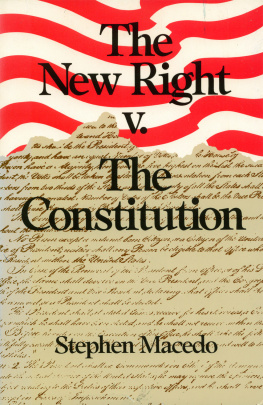

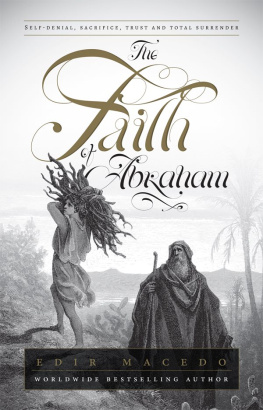
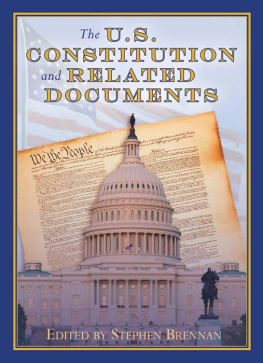
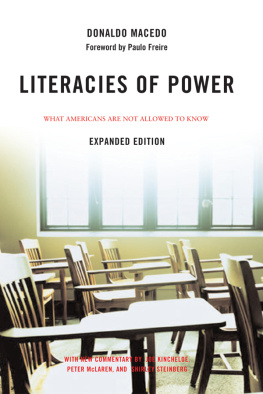
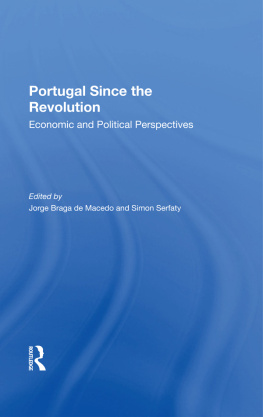
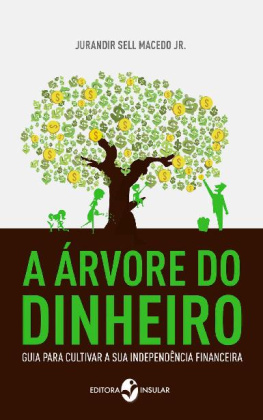

![Macedo - Redis cookbook: [Practical techniques for fast data manipulation]](/uploads/posts/book/137932/thumbs/macedo-redis-cookbook-practical-techniques-for.jpg)